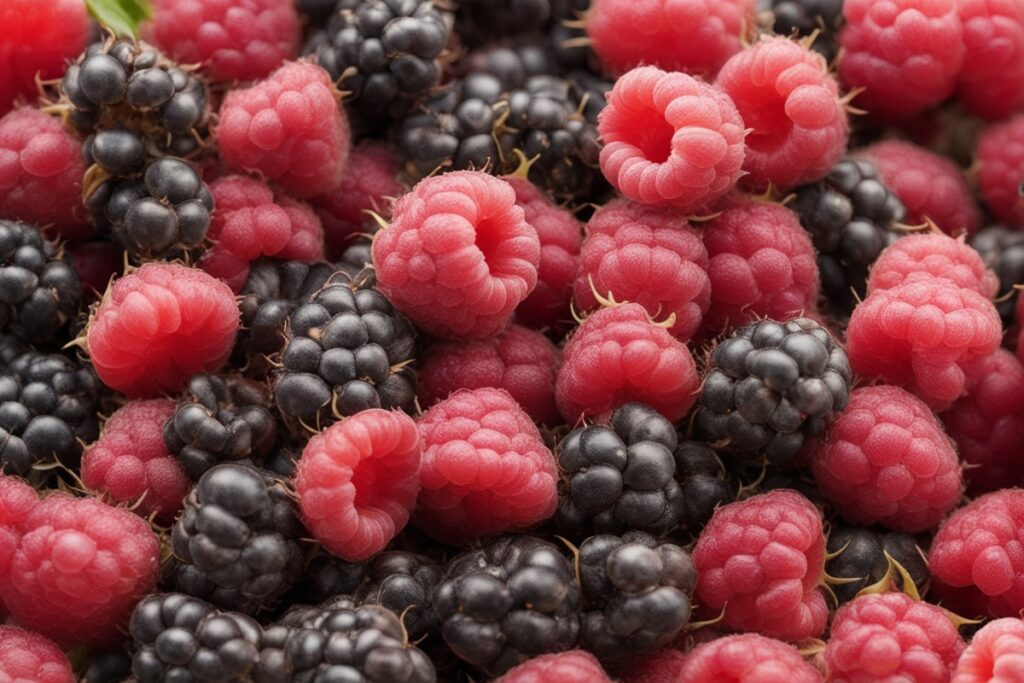Ahh, the sweet-tart burst of a fresh raspberry straight from the garden—there’s nothing quite like it, is there? If you’re itching to grow your own juicy berries, you’re in the right place. Sowing raspberry seeds now can set you up for a bountiful harvest, but not all seeds are created equal. Choosing the best raspberry seeds to sow now is the first step to ensuring vibrant plants and a crop that’ll make your neighbors green with envy. I’ve spent years tinkering in my own backyard patch, learning through trial and error what works and what flops. Today, I’m sharing those hard-earned lessons, along with insights from trusted horticultural experts, to help you pick the perfect seeds for your garden. Let’s dig in!
Why Timing Matters When Sowing Raspberry Seeds
Timing is everything when it comes to planting raspberry seeds. Sow too early, and a late frost could wipe out your tender sprouts. Wait too long, and you might miss the ideal growing window for strong root development. For most regions, late winter to early spring—think February to April in the northern hemisphere—is prime time for starting seeds indoors. This gives your plants a head start before transplanting them outside after the last frost. I remember one year I got overly eager and planted in January without a heat mat. Big mistake. Half my seeds didn’t even germinate due to the chilly soil. Lesson learned: check your local frost dates and aim for 6-8 weeks before you plan to move them outdoors. If you’re in a milder climate, direct sowing in early spring can work too—just make sure the soil’s workable and not a muddy mess.
What Makes the Best Raspberry Seeds Stand Out?
Not all raspberry seeds will give you the results you’re dreaming of. So, what should you look for in the best raspberry seeds to sow now? First, consider the variety—red, black, purple, or golden raspberries each have unique flavors and growing needs. Then there’s disease resistance, which is a game-changer if you’ve ever battled fungal issues like verticillium wilt. Hardiness zones matter too; a seed suited for Zone 3 won’t thrive in Zone 9 without some serious babying. And don’t overlook yield potential—some cultivars are bred for bumper crops, while others prioritize flavor over quantity. I’ve found that hybrid seeds often offer better resistance and uniformity, but heirlooms can steal the show with their complex taste. It’s a balancing act, and knowing your priorities (and your garden’s quirks) is key.
Top Picks for the Best Raspberry Seeds to Sow Now
Let’s get to the good stuff—the varieties I’ve tested or researched extensively through trusted sources like university extension programs. These are my top recommendations for raspberry seeds to sow right now, tailored to different needs and climates:
- ‘Heritage’ (Red Raspberry): A classic everbearing variety, ‘Heritage’ is tough as nails and produces two crops a year—summer and fall. It’s ideal for Zones 4-8 and resists many common diseases. I planted these a few seasons back, and even with minimal care, they churned out sweet, firm berries perfect for jams.
- ‘Anne’ (Golden Raspberry): If you’re after something unique, ‘Anne’ offers pale yellow berries with a milder, almost honeyed flavor. Best for Zones 4-9, it’s a fall-bearer with decent disease resistance. A friend swore by these for fresh eating, and after trying them, I’m sold.
- ‘Bristol’ (Black Raspberry): Known for its rich, intense taste, ‘Bristol’ thrives in Zones 4-8. It’s a summer-bearer with good vigor, though it needs extra protection from birds. Trust me, net those plants unless you want to share your harvest with the local wildlife!
- ‘Fallgold’ (Golden Raspberry): Another everbearing gem, ‘Fallgold’ delivers sweet golden fruit and handles Zones 4-8 with ease. It’s less thorny than some, which is a bonus if you’ve got kids helping in the garden.
These picks are widely praised by gardening communities and backed by research from places like the University of Minnesota Extension. But remember, the “best” seed depends on your soil, climate, and taste buds. Experiment a little—gardening’s half science, half adventure!
How to Source High-Quality Raspberry Seeds
Imagine this: you’ve picked the perfect variety, but the seeds you bought are duds—old, poorly stored, or worse, mislabeled. It’s happened to me, and it’s a gut punch. To avoid that heartache, buy from reputable suppliers. Look for seed companies with detailed descriptions, germination guarantees, and customer reviews. Local nurseries can be goldmines too, often carrying seeds suited to your region. Online, trusted names like Baker Creek Heirloom Seeds or Johnny’s Selected Seeds have solid reputations. Check for organic or non-GMO certifications if that’s your vibe, and always peek at the packaging date—fresher is better. Pro tip: store any extras in a cool, dry place to keep viability high for next season. I’ve got a little airtight container in my fridge just for this, and it’s saved me more than once.
Tips for Sowing Raspberry Seeds Successfully
Got your seeds? Great! Now let’s talk about getting them in the ground—or rather, in a starter tray. Raspberries can be finicky to germinate, often needing a process called stratification (a fancy way of saying “mimic winter”). Mix your seeds with damp sand, pop them in a baggie, and refrigerate for 4-6 weeks before sowing. I skipped this step once, thinking I’d outsmart nature. Spoiler: I didn’t. Germination rates were abysmal. After stratification, sow seeds in well-draining soil, about ¼ inch deep, and keep them moist but not soggy. A heat mat can speed things up—aim for 70-75°F. Once they sprout, give them plenty of light; a south-facing window or grow lights work wonders. Transplant outdoors when they’ve got a few true leaves and the weather’s on your side. Oh, and don’t skimp on spacing—18-24 inches between plants prevents overcrowding and disease.
Common Pitfalls to Avoid When Growing from Seed
Starting raspberries from seed isn’t a walk in the park, and I’ve stumbled into plenty of traps over the years. First off, don’t expect quick results—seeds take longer to mature than buying bare-root plants or canes, often 2-3 years before a decent harvest. If you’re impatient, this might not be your path. Overwatering is another killer; soggy soil invites root rot faster than you can say “mold.” And watch out for pests like aphids—those little suckers love tender shoots. I’ve had luck with neem oil as a natural deterrent, but you’ve gotta stay vigilant. Lastly, don’t ignore soil prep. Raspberries crave slightly acidic, well-drained soil (pH 5.5-6.5). Test yours before planting, and amend with compost or peat moss if needed. Skip this, and you’re asking for stunted growth. Been there, done that, and it’s not pretty.
So, where do you stand? Are you ready to sow some of the best raspberry seeds now and transform your garden into a berry haven? Whether you’re drawn to the classic ‘Heritage’ or tempted by the unique ‘Anne,’ the right seeds, timing, and care can make all the difference. I’ve shared my wins and flops to steer you clear of rookie mistakes, and I hope you’ll take these tips and run with them. Gardening’s a journey—sometimes messy, often rewarding—and I’d love to hear how your raspberry patch turns out. Drop a comment or shoot me a message if you’ve got questions. Happy planting!
References
- University of Minnesota Extension – Growing Raspberries in the Home Garden
- Penn State Extension – Raspberry Varieties for Pennsylvania
- Royal Horticultural Society – How to Grow Raspberries
- Oregon State University Extension – Growing Raspberries in Oregon
- Missouri Botanical Garden – Raspberries
Disclaimer: This article is for informational purposes only, based on general research and personal experience. It is not intended to serve as a substitute for professional advice. Gardening conditions, climates, and individual circumstances can vary widely, so results may differ from those described. Always consult a qualified horticulturist, agricultural extension service, or other expert for personalized guidance tailored to your specific situation. The author and publisher are not responsible for any adverse effects or consequences resulting from the use of the information provided in this content. Proceed with care and due diligence when applying these tips to your own garden.
This content is for informational purposes only and not a substitute for professional advice.



